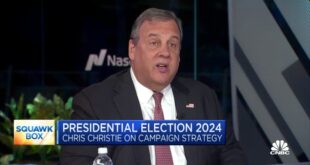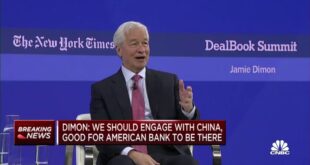
Chip Somodevilla | Getty Images
U.S. Circuit Judge Brett M. Kavanaugh looks on as U.S. President Donald Trump introduces him as his nominee to the United States Supreme Court during an event in the East Room of the White House July 9, 2018 in Washington, DC.
The Consumer Financial Protection Bureau, established in 2010 to protect Americans from the type of predatory financial practices that caused the financial crisis two years before, is likely to face one of its toughest critics at the Supreme Court if President Donald Trump’s pick Brett Kavanaugh is confirmed by the Senate.
Kavanaugh, a judge on the Court of Appeals for the District of Columbia Circuit, has repeatedly ruled that the structure of the consumer watchdog is unconstitutional.
In October 2016, Kavanaugh claimed that the head of the agency, which was founded in the aftermath of the 2008 global financial crisis, had more power than any government official besides the president, and struck down its structure on constitutional grounds even as a dissenting judge said the same result could have been reached more narrowly.
“The concentration of massive, unchecked power in a single Director marks a dramatic departure from settled historical practice and makes the CFPB unique among independent agencies,” Kavanaugh wrote in an October 2016 ruling in PHH v. CFPB. He declared that the director of the CFPB was not just a director, but was the “President of Consumer Finance.”
“Indeed, other than the President, the Director of the CFPB is the single most powerful official in the entire United States Government, at least when measured in terms of unilateral power,” Kavanaugh wrote. “That is not an overstatement.”
Kavanaugh wrote that the head of the agency was more powerful than the speaker of the House, the chief justice of the Supreme Court, the chairman of the Federal Reserve, the secretary of Defense, and — within the CFPB director’s wide-ranging jurisdiction — the president himself.
Two years later, the full court overturned Kavanaugh’s ruling on the constitutional matter, likening the case against the CFPB to a “wholesale attack on independent agencies — whether collectively or individually led — that, if accepted, would broadly transform modern government.”
Court watchers have their eyes on the 5th U.S. Circuit Court of Appeals, which agreed in April to hear a constitutional challenge to the bureau. A finding against the CFPB would cause a circuit split — upping the chances of a review from the Supreme Court. The U.S. District Court for the Southern District of New York ruled last month that the CFPB was unconstitutional and adopted parts of Kavanaugh’s dissent in its ruling.
 EU News Digest Latest News & Updates
EU News Digest Latest News & Updates



